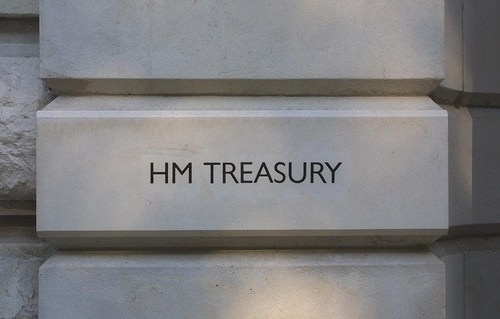
Friday, 28 March 2014 09:33
Treasury Committee MP questions logic of pension reforms

A member of the Treasury Committee has questioned the logic of the Budget pension reforms, saying the Government is trusting people with their own money on one hand yet, on the other, effectively forcing them to save more through auto-enrolment.
George Osborne ended the necessity to buy an annuity in last week's Budget in a major overhaul of the current system.
He said retirees should be trusted with their own funds and therefore would be allowed to take their pension fund all in one go in future, should they wish.
But Pat McFadden MP, speaking at the Treasury Committee session this week, said: "If the argument is to trust people with their own money what is the logic of auto enrolling people in a pension scheme in the first place? Which is a form almost of enforced saving."
The Labour politician said: "I don't realy understand why there should be different approach if you are trusted with your money (at the end of your working life)...why not when you're young?"
{desktop}{/desktop}{mobile}{/mobile}
Paul Johnson, director, and Gemma Tetlow, programme director, of pensions, savings and public finances at the Institute for Fiscal Studies answered questions from the committee which was reviewing the Budget reforms.
Mr Johnson replied to Mr McFadden: "That's an interesting question. There is a move towards a bit more paternalism on the putting 'money in'- side' and a bit less on the 'taking out'-side."
Ms Tetlow said: "I think there are perhaps two potential reasons for auto-enrolment. One would be that people are very short sighted – therefore even if it's quite easy to opt in they don't see the benefit because they discount the future.
"The second, perhaps, would be that it's quite a lot of hassle to get into a pension so if the default is you're making those contributions it removes that hassle factor from you.
"To get rid of the requirement to buy an annuity later along I think you'd have to believe people are less short sighted at the age of 55 or certainly less short sighted about the end of their lives at that point."
Asked to respond to Mr McFadden's point by Financial Planner Online, the Treasury gave this statement:
"The Government recognises that people are not currently saving enough. That is why we introduced automatic enrolment, which gives all employers a new duty to automatically enrol all eligible employees in to a qualifying pension scheme, to help people to save more.
"In order to have the confidence to save, people need to know that they will be able to get value for money from their savings when they come to access them.
"The new pensions freedoms announced by the Government at the Budget will ensure hardworking people have confidence in this area and consequently increase levels of saving."
George Osborne ended the necessity to buy an annuity in last week's Budget in a major overhaul of the current system.
He said retirees should be trusted with their own funds and therefore would be allowed to take their pension fund all in one go in future, should they wish.
But Pat McFadden MP, speaking at the Treasury Committee session this week, said: "If the argument is to trust people with their own money what is the logic of auto enrolling people in a pension scheme in the first place? Which is a form almost of enforced saving."
The Labour politician said: "I don't realy understand why there should be different approach if you are trusted with your money (at the end of your working life)...why not when you're young?"
{desktop}{/desktop}{mobile}{/mobile}
Paul Johnson, director, and Gemma Tetlow, programme director, of pensions, savings and public finances at the Institute for Fiscal Studies answered questions from the committee which was reviewing the Budget reforms.
Mr Johnson replied to Mr McFadden: "That's an interesting question. There is a move towards a bit more paternalism on the putting 'money in'- side' and a bit less on the 'taking out'-side."
Ms Tetlow said: "I think there are perhaps two potential reasons for auto-enrolment. One would be that people are very short sighted – therefore even if it's quite easy to opt in they don't see the benefit because they discount the future.
"The second, perhaps, would be that it's quite a lot of hassle to get into a pension so if the default is you're making those contributions it removes that hassle factor from you.
"To get rid of the requirement to buy an annuity later along I think you'd have to believe people are less short sighted at the age of 55 or certainly less short sighted about the end of their lives at that point."
Asked to respond to Mr McFadden's point by Financial Planner Online, the Treasury gave this statement:
"The Government recognises that people are not currently saving enough. That is why we introduced automatic enrolment, which gives all employers a new duty to automatically enrol all eligible employees in to a qualifying pension scheme, to help people to save more.
"In order to have the confidence to save, people need to know that they will be able to get value for money from their savings when they come to access them.
"The new pensions freedoms announced by the Government at the Budget will ensure hardworking people have confidence in this area and consequently increase levels of saving."
This page is available to subscribers. Click here to sign in or get access.
